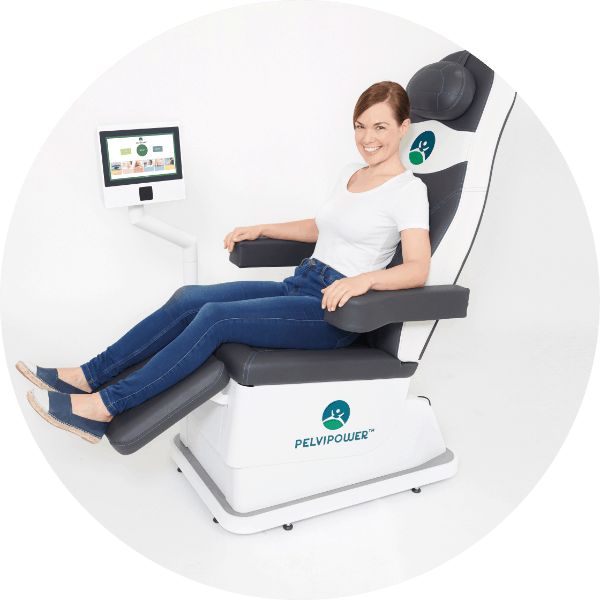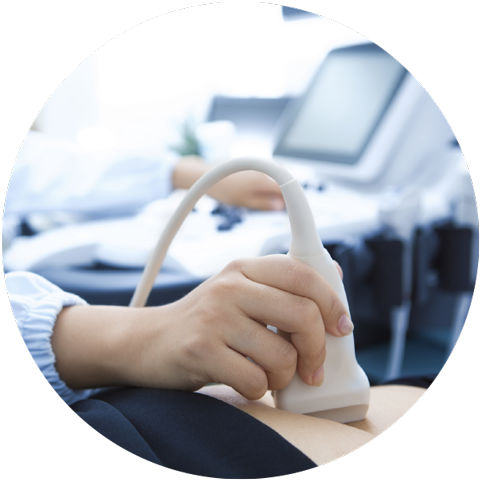Pelvic Organ Prolapse (‘POP’) is a common condition with over 50% of women having some degree of prolapse in their lifetime. A prolapse occurs when the tissues that hold the pelvic organs in place become weaker or stretch. This allows the bladder, uterus, small intestine, or rectum to slip down or droop from their normal position. The incidence increases after childbirth and with increasing age.

What is Pelvic Organ Prolapse?

What Are the Symptoms of Pelvic Organ Prolapse?
Some women notice nothing at all (particularly those women with mild prolapse), but others may feel one or more of the following symptoms:
- a feeling of pressure, dragging or fullness in the pelvic area
- lower back pain
- painful intercourse
- a feeling that something is falling out of the vagina
- a visible bulge in the vagina or anus
- stress or urge urinary incontinence
- constipation, and/or
- a feeling of incomplete urination or defaecation
Symptoms will depend somewhat on which organ is drooping (e.g. bladder, rectum, small intestine, uterus).

What Causes Pelvic Organ Prolapse?
Pelvic Organ Prolapse can be caused by a combination of factors, including:
- anything that puts increased pressure in the abdomen, such as: pregnancy, labour and childbirth (the most common causes), chronic constipation and straining, heavy lifting and intense repetitive activity (such as CrossFit)
- obesity
- smoking
- pelvic floor injury (e.g. injuries caused during vaginal delivery, surgery, pelvic radiation, or fractures to the back and pelvis caused by falls or accidents)
- menopause
- hysterectomy
- a chronic, long-term cough
- genetics (pelvic organ prolapse can be hereditary with connective tissues weaker in some women).

How we can help Pelvic Organ Prolapse
- A minor prolapse with little to no symptoms is worth checking as getting the right treatment and exercise guidance may mean it never gets worse and stays symptom free
- Helping you optimise the strength, endurance and coordination of your pelvic floor muscles and learning how to use that ability in your daily exertions and exercise helps control the symptoms and severity of prolapse. It may also delay or prevent the need for surgery
- We give you advice on lifestyle modifications and self help techniques to help you stay in control
- Many surgeons now recommend pelvic floor physiotherapy in preparation for and rehabilitation after prolapse repair surgery. This ensures the most likelihood of a positive, long term result
- Improving the functional performance of the pelvic floor muscles has been found to improve the success of pessary management
Click through the tabs below for more information on treatment options

Pelvic Health Physio
Pelvic floor muscle training with a qualified pelvic health physiotherapist is a researched, first line medical recommendation for the management of prolapse. Our priority is to make sure you are using your pelvic floor correctly. Then we can empower you with how you can improve your strength and ability in functional ways at home and with appropriate exercise activities.

PelviPower
PelviPower Magnetic Field Therapy (MFT) uses repetitive magnetic impulses to trigger comfortable but powerful contractions of the pelvic floor and surrounding muscles.
With contractions much stronger than you can achieve yourself, the function, coordination and strength of your pelvic floor is improved. This enables you to protect and support your prolapse with your own muscle function.
PelviPower Biofeedback Training (BFT) increases the perception, coordination and control of your pelvic floor because you see the efforts of your training presented to you in real time on a computer screen in front of you.
There is no need to undress as you train in your every day clothes.

Real Time Ultrasound Biofeedback
As many as 25% of women bare down on their pelvic floor when activating it which can worsen symptoms and severity of prolapse. Ultrasound scanning is a non invasive assessment tool that helps us teach you the correct technique of lifting your pelvic floor to support pelvic organ prolapse. Seeing your muscles move as you feel them contract is a very powerful training tool.

